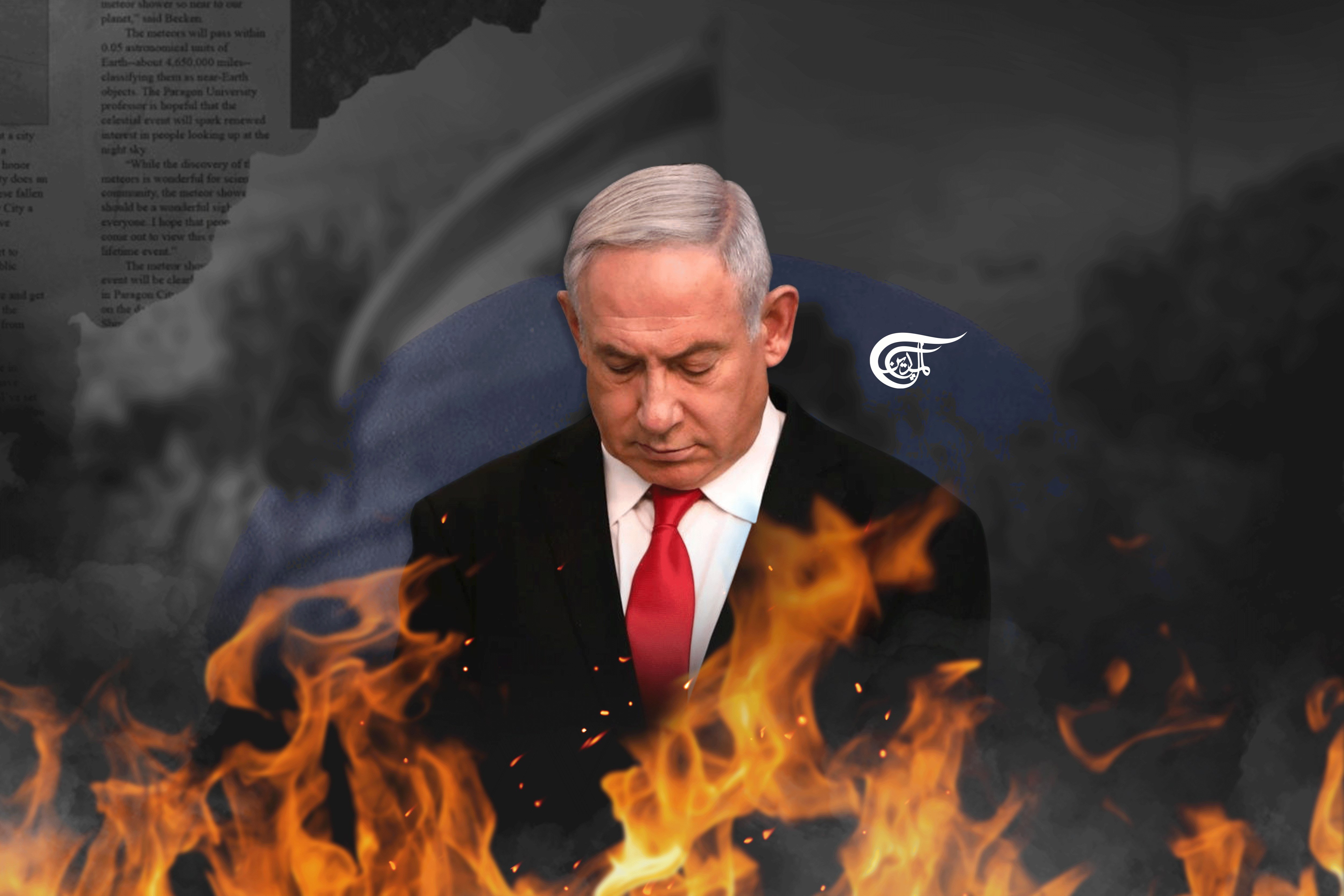Netanyahu’s coalition makes 'Israel' weak, which serves as an opportunity for the Resistance
Hundreds of thousands of Israelis from opposing sides, both in agreement about maintaining an apartheid regime but in disagreement about the nature of what their ethnic supremacy should look like, are clashing in the streets.
The ongoing internal dispute between the two Israeli camps, pro- and anti-Netanyahu, has brought about an even deeper split inside the Zionist entity, which is all of its own doing. At a time when Israeli politics has again taken the Palestinian question seriously, this question is combined with what regime they must implement in order to move on.
Hundreds of thousands of Israelis from opposing sides, both in agreement about maintaining an apartheid regime but in disagreement about the nature of what their ethnic supremacy should look like, are clashing in the streets. The disputes have placed a dividing line inside "Israel’s" military, political, and police establishments, which has now attracted the Western media to the doorstep of this dispute.
The planned judicial reforms that the Israeli ruling coalition, led by its Prime Minister Benjamin Netanyahu, set forth and has recently made the decision to strategically delay are aimed at dropping the oversight of the Israeli supreme court over the Knesset’s legislative decisions. Although it has been clear for a long time now that the Israeli political scene is moving further to the right with every new election, there has yet to be a ruling coalition that displays the fracturing effects of "Israel’s" extreme settler-based movement.
Even under the more liberal-leaning Israeli Labour party leadership, settlement expansion was a pillar of the regime’s policy, designed to fragment Palestinian territorial continuity and de facto "annex" more of historic Palestine. For long, this status quo, which was continued as Israeli society began to lean further Right, was maintained; a situation under which a slow "annexation" process would take place through the expansion of settlements in the West Bank and "East Jerusalem". This slow version of ethnic cleansing and "annexation" was paired with a combined effort to use the Palestinian Authority in order to prevent any major escalations in violence, and it was working.
However, almost at the exact same time, the consequences of backing the illegal settlers and the deterioration of living conditions for Palestinians under occupation began to rear their heads. The younger generation of Palestinians, who see no hope in any political process through dialogue and live through hellish conditions, began to rise up. Simultaneously, the sheer numbers of extremist settler ideologues began to gain political traction and enter the Israeli Knesset. The November Israeli elections saw the most extreme Israeli political alliance, Religious Zionism, take third place overall and entered into a partnership with Benjamin Netanyahu’s Likud party in order to form today’s coalition.
Benjamin Netanyahu is now in a position where he depends on the Religious Zionism party to maintain his position of power. If the two leading figures of Religious Zionism, Bezalel Smotrich and Itamar Ben-Gvir, decide they no longer wish to maintain this alliance, Netanyahu will eventually fall after losing the majority of Knesset seats needed for running his regime. This means that the Religious Zionism alliance possesses the power to significantly influence Netanyahu and his policy decisions.
What is important about the power of Religious Zionism is that it is a political alliance between extremist settler ideologues. Ben-Gvir and Smotrich are not strategic thinkers like their Likud Party allies; they are heavily motivated by an emotional commitment to their extreme ideology. That they will act without strategic consideration has been proven through Ben-Gvir’s irrational provocation at Al-Aqsa Mosque in January and Smotrich’s repeated racist statements, both of which have provoked the specific ire of Jordan, a country that has normalized with "Israel" and is a key strategic partner.
The clashes on the streets between Israeli advocates and opposers to the judicial reform represent the divide between those Israelis who want to maintain the status quo and the extreme Right that wants to change the nature of the system; to make it more Jewish and less secular. The chaos inside the Israeli establishment may not take down the entire system, but it certainly poses a major problem in the readiness of the entity to pursue its regional agenda. This is the result of the more secular apartheid system running its course; simply put, you cannot have a democracy and an apartheid regime at the same time. The settlement expansion plan has led to this point, where Israelis face such an internal dilemma, yet, almost none of those demonstrating wants to admit this obvious fact. The West Bank settlers are the ones leading the way toward the judicial reforms and seek to Judaize a largely secular regime for its Jewish citizens. These radical settlers are now so powerful that they will not simply go away, and there are no dominant Israeli political parties that will ever advocate for dismantling the settlements either. Hence, through its own policies, "Tel Aviv" has created its own mess, and this was all an attempt to destroy Palestinian statehood and self-determination.
In the meantime, the Palestinian Resistance, along with the Zionist entity’s regional opposition, has been put in a strong position, because the extremists who determine much of the regime's policies are easier to maneuver against. Benjamin Netanyahu is looking for survival at this time, and we will see whether he is more committed to his own survival or that of his apartheid regime. If Netanyahu is to confront the Resistance militarily, there is now an element of predictability in the Israeli regime, one which did not previously exist to this level, and new calculations can certainly be made to outwit "Israel" on the battlefield. The weakness of the regime cannot be taken for a moment of immediate demise, and this mistake in analysis cannot be made, however, there are now more opportunities to exploit in the favor of the Resistance that can achieve strategic victories.

 Robert Inlakesh
Robert Inlakesh
 6 Min Read
6 Min Read












